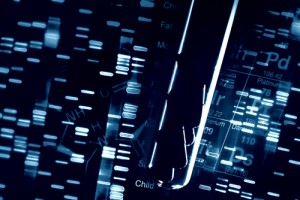 A surgical oncologist from Nashville and his team of fellow researchers recently published an observational study that compares two types of presurgical assessment tests for breast cancer patients. One of them was discovered to yield more accurate results, potentially allowing oncologists to prescribe a more effective treatment plan.
A surgical oncologist from Nashville and his team of fellow researchers recently published an observational study that compares two types of presurgical assessment tests for breast cancer patients. One of them was discovered to yield more accurate results, potentially allowing oncologists to prescribe a more effective treatment plan.
Dr. Pat Whitworth, the study’s lead author, focused the team’s attention on the BluePrint genomic test and the traditional IHC-FISH pathology tests. 426 breast cancer patients participated in the research, which revealed the genomic test gave physicians a more accurate prediction of a patient’s response to preoperative therapy as the BluePrint test was more specific with the molecular subtype of breast cancer. The study is currently available online in the Annals of Surgical Oncology, entitled, “A Comparison of Ink-Directed and Traditional Whole-Cavity Re-Excision for Breast Lumpectomy Specimens With Positive Margins.”
According to the study, the 80-gene BluePrint text was able to properly reclassify roughly 22% of sampled breast tumors – a significant improvement from what the IHC-FISH test is capable of. The researchers did not neglect to disclose that the BluePrint test was performed along with Agendia’s 70-gene MammaPrint test, which determines the patient’s overall risk category of High- or Low Risk recurrence. Together, the two tests are complementary and are able to provide a better picture of the disease given any particular patient.
Agendia’s CMO, oncologist Dr. Neil Barth, explained that these findings could potentially change everything about breast cancer treatment. For almost 4 decades, all oncologists ever relied on were IHC-FISH results to create treatment plans, despite eventually encountering cases where the cancer behaved differently. It was a dangerous and costly gamble for both the physician and patient.
Personalized treatment has become one of today’s main focal points in biomedical research. Prescribing tailored treatments is one way of reducing health dollar costs, while at the same time improve treatment compliance and efficacy. DNA STAT boasts a new approach to personalizing pharmaceutical treatments. Their new method utilizes pharmacogenomics that analyze patients’ metabolism to predict the body’s response to certain medications.
[adrotate group=”3″]

